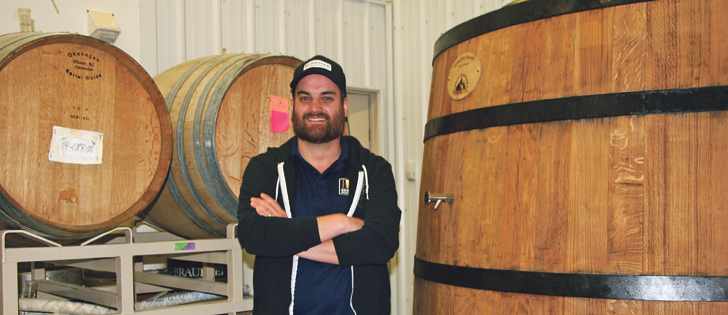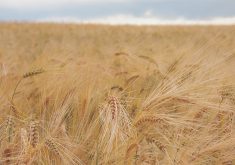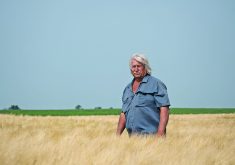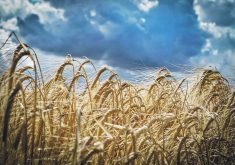LACOMBE, Alta. — With the stunning rise in craft breweries, some companies have unique approaches to stay ahead of the competition.
For Blindman Brewery at Lac-ombe, the idea of crowd funding helped the operation get enough money to import foeders from France.
A foeder, pronounced food-er, is a large oak vat used to age wine. More craft brewers are turning to oak casks to mature beer while producing unique flavours.
Two 3,000 litre oak foeders recently arrived in Lacombe and will be used along with casks formerly used to age bourbon or wine.
Read Also

New coal mine proposal met with old concerns
A smaller version of the previously rejected Grassy Mountain coal mine project in Crowsnest Pass is back on the table, and the Livingstone Landowners Group continues to voice concerns about the environmental risks.
“There is a symbiotic relationship between the wine makers and spirit makers,” said Kirk Zembal, one of the co-owners of the company that formed in 2015.
Blindman Brewery has 11 beers on tap and head brewer Adam Campbell is working on more. The company’s specialty is sour beer produced with specific varieties of hops.
They buy malt from different Alberta sources such as Rahr Malt of Alix and craft maltsters such as Red Shed Malting of Penhold and Hogarth Malt near Olds.
Hops may come from Chilliwack Hop Farms as well as other sources.
While many of the new breweries are not big enough to contract with individual farmers to grow special grain varieties, more are looking for products beyond barley.
Blindman has made beer from malted and unmalted wheat, oats and barley to create different flavours and types.
They also plan to research other grains beyond barley or wheat.
“Alberta grows the best barley in the world and the craft beer world wants to put that story out there,” he said.
Hop varieties are selected to add flavour.
“The older school in craft beer was to go bitter, bitter-bitter but thanks to these new hop varieties, we can produce all sorts of flavours by cutting back the bitterness and amping up the dry hops,” he said.
More people, including some farms in Alberta are trying to grow hops but it takes time to produce mature plants and get adequate volume.
“A lot of the growth of craft brewers is due to hop grower because they started to breed and grow aroma filled hops,” he said.
Blindman typically uses pelleted hops because they are too far away for the fresh variety.
“When hops are ready, they are ready and we need them within 24 hours, otherwise we are shipping a bag of compost,” Zembal said.
“When hops are fresh, there is a lot of water in them. You want the oils in the hops rather than the water,” he said.
Hops are added at different points in the process to change the flavour. This company also gets lacto bacillus, a friendly bacteria from local yogurt maker Bleswold to create a sour beer.
Alcohol content ranges from four to 11 percent.
“As long as we are under 11.9 percent, it is still all beer,” he said.
Blindman has a 15 barrel per day system. Each barrel is 17,300 litres.
In addition to on-site sales, Blindman Brewery sells beer to restaurants and bars, as well as 200 liquor stores in the province.
Zembal has no concern about oversaturation of the craft beer market, although no one is sure of the size of the industry at this time.
The list is growing but right now Alberta has about 60 brewing licenses compared to 18 in 2014, according to the Alberta Small Brewers Association.


















